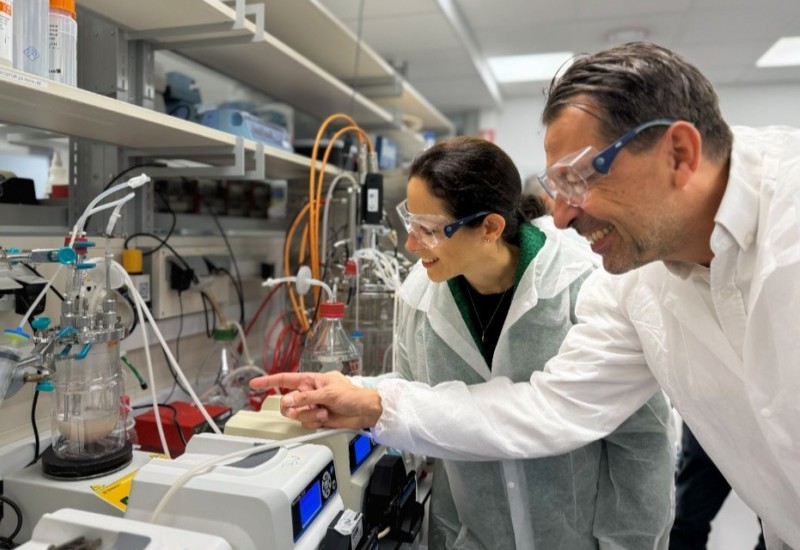Feature article - Is preparing a war chest the answer to securing chemical supply chains?
Karsten Smet, CEO of ACI Group, looks at how we can prepare for further geopolitical upheaval
As the Russian invasion of Ukraine continues in Europe, the prospect of another war would appear to be an existential threat to the world’s already-stretched chemical supply chains. And yet, sadly, as tensions between China and Taiwan continue to escalate, the potential for war in Asia is growing too. As is often the case, these tensions are deeply rooted in decades of complex history and geopolitical wrangling, and the reasons behind them are difficult to unpick. But what is easier to understand are the reasons for the global anxiety over this potential conflict.
China is the world’s manufacturing powerhouse, making up almost a third of the world’s total manufacturing value on its own, and is the largest chemicals market on Earth, controlling 45% of the overall market volume.1,2 This alone means the potential for war over Taiwan – the largest of several small islands governed by the Republic of China, which has been at odds with the mainland People’s Republic of China government for decades – has dire ramifications for many industries that rely heavily on imports from China and Taiwan, but the chemical industry may be one of the hardest hit.
The one silver lining is that chemical suppliers have precious time to prepare themselves for what may be coming. The only question is: how? War games & digitalisation There is a great deal we still do not know about a potential war between China and Taiwan. While think tank Rhodium Group estimates a conflict would put “well over $2 trillion at risk”, this does not consider the impact of potential international sanctions or a military response.3
The prospect of sanctions – which may be applied by China to the West, and vice versa – means many companies could be forced to decouple physical and digital assets from mainland China. This may prove difficult as the Chinese market for chemicals is highly attractive for suppliers looking to expand internationally, who may have begun adapting their business models to fit with the Chinese ecosystem.
The prospect of having this work undone at a stroke by the declaration of sanctions is one that must be prepared for, as unpalatable as it seems. Businesses such as BT, the UK telecoms giant, have been holding ‘war games’ exercises to prepare for potential disruption.4
Carrying out similar exercises may help businesses prepare for a wide range of scenarios, which is essential when there is still so much about this evolving situation that remains unknown. This will allow more effective resilience plans to be drawn up, put into action, and updated as required.
While China’s sheer economic heft means any military operations it is involved in will send shockwaves around the global economy, the importance of Taiwan should not be underestimated as it leads the world in its cutting-edge semiconductor fabrication and logic microchip development.5 Should these supplies be disrupted, it will inevitably have a knock-on effect on supply chain digitalisation. Semiconductors are the foundation of the world’s streaming, data, and cloud-based infrastructure, which have significantly expanded since the start of the pandemic.
This situation is made more complex by China’s important role in the silicon supply chain, with much of the silicon Taiwan uses in its microchip development sourced from across the Taiwan Strait. Should those silicon supplies be disrupted or shut off, the world’s digital infrastructure will be affected. At the very least, prices of products and services powered by silicon wafers and microchips will increase, while innovation will be stifled. Issues with both the quality and quantity of microchips on the market will have an unavoidable impact on our planet’s digital, AI- and-algorithm-driven future.
All of this means that disruption of these supplies can hinder one of the most important ways businesses can flex their supply chains, leading to a vicious cycle of further issues stemming from an outdated, inflexible supply chain. While bolstering supply chains with digitalisation is still viable, it must be implemented now for chemical companies to take advantage should war break out.
China Plus One & sustainable diversification
Often, investments like this are compared to a ‘war chest’, but this phrase does not do justice to the kind of diversification required. It implies a focus on simple stockpiling rather than strategically adding flex to key links in the chain. Companies focused on penetrating the growing Chinese chemical market may find it more beneficial to pivot to a ‘China Plus One’ strategy instead, as diversification does not necessarily need to be an all-or-nothing strategy.
Should diplomacy prevail, tensions may de-escalate, and a business that has entirely decoupled from the Chinese market will find itself having to start from scratch to gain access to the most prosperous chemicals market on the planet. A more balanced approach is essential.
With proper digital supply chain management, it is easier for companies to move smaller amounts of their supply chains outside of China, which reduces risk substantially without totally uprooting existing processes. A digital supply chain platform makes it easier to take advantage of other rapidly developing markets such as India, where the strong growth of the chemicals industry in recent years has exceeded expectations.6
This is more complex than it sounds, as it must all be considered alongside ever-present environmental concerns. The needs of the planet do not go away just because of a geopolitical crisis, no matter how large. However, digitally driven diversification can help here too. A distributor that takes a 360-degree, holistic view of all aspects of a product’s life cycle can effectively review supply chains for new efficiencies and potential blockages. This can be useful when considering alternative ingredients to build resilience.
Role of distributors
Using our Flomac service as an example, ACI Group can source an adhesion promoter additive that is produced using more traditionally sustainable materials. However, if this additive delivers an unsatisfactory performance that results in roads degrading prematurely and needing to be re-laid, this will have a net negative effect on its carbon footprint when compared to an existing solution.
This adds another wrinkle into debates around the future of supply chains – and while this wrinkle exists, regardless of the situation between China and Taiwan, it only grows more pronounced in the event of military conflict. But just as the global drive to sustainability does not go away if war breaks out, neither do other challenges stretching supply chains around the world.
Regulatory changes, logistical bottlenecks and natural market fluctuations will still occur. Chemical suppliers must prepare for an eventuality where they cannot rely on the same processes, supply chains, and routes that they always have. More than a ‘war chest’, businesses need flexibility to maintain product quality, throughput, and speed to market.
Distributors can provide that flexibility, identifying supply chain issues large or small and avoiding them – whether that involves finding alternative materials, more local supplies, or both. There remain many degrees of uncertainty about how the situation between China and Taiwan will develop. Only by acting quickly – and strategically – to digitally transform their supply chains can chemical businesses protect themselves from this uncertainty.
References
1. https://worldpopulationreview.com/country-rankings/manufacturing-by-country
2.https://www2.deloitte.com/content/dam/Deloitte/de/Documents/energy-resources/Deloitte-European-Chemicals-Outlook.pdf
3. https://rhg.com/research/taiwan-economic-disruptions/#:~:text=Conclusion,sanctions%20or%20a%20military%20response
4. https://www.ft.com/content/bb1f4951-eef5-4b3d-990a-f29d6fa28d54
5. https://imageio.forbes.com/specials-images/imageserve/63c161e1680d26f58d964a45/20230112-Semiconductor-Taiwan-Forbes--1-/960x0.jpg?format=jpg&width=1440 6. https://www.mckinsey.com/industries/chemicals/our-insights/india-the-next-chemicals-manufacturing-hub















